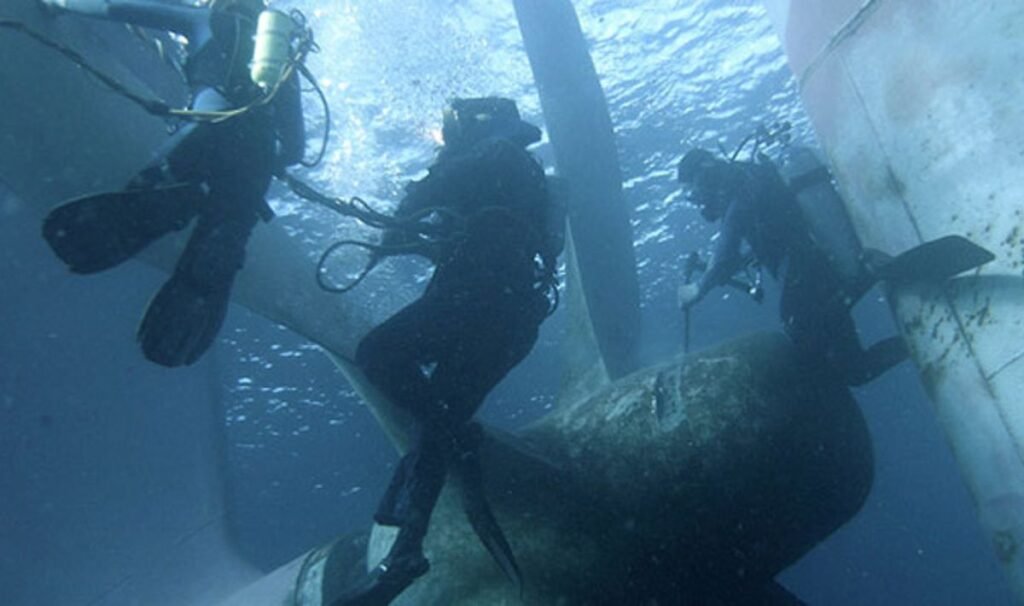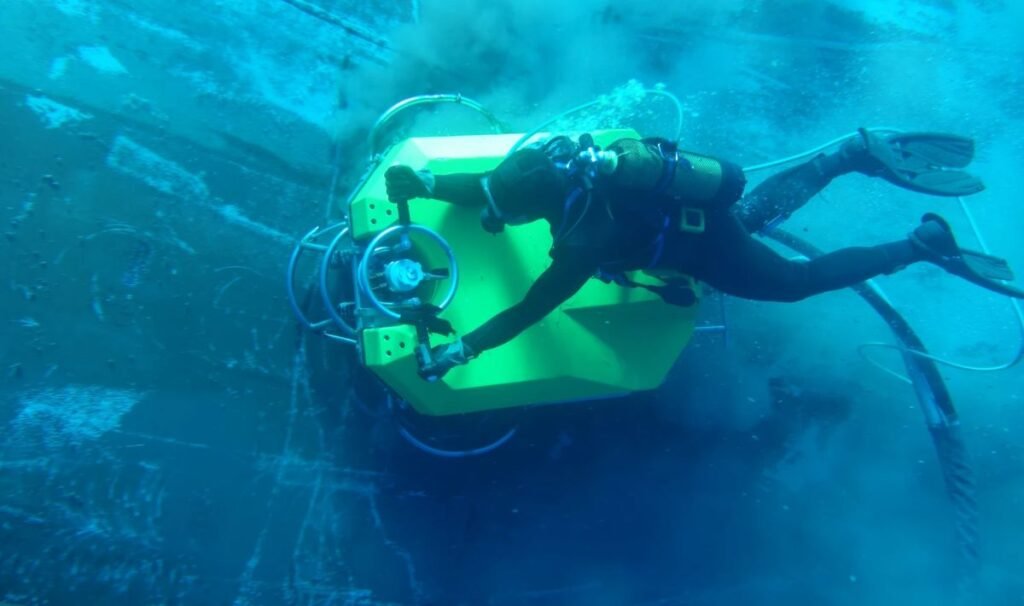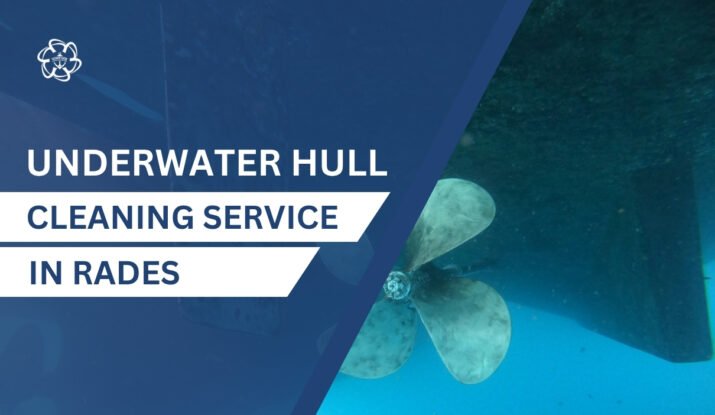If you operate a vessel in Tunisia, underwater hull cleaning in Rades is a critical part of your maintenance routine. Beneath the surface, your ship’s hull is constantly exposed to marine growth—algae, barnacles, and other sea life that can quickly turn a smooth hull into a drag-inducing, fuel-wasting problem. In this comprehensive guide, we’ll explore why underwater hull cleaning in Rades is essential, the methods used, and how to choose the right service for your vessel.
Introduction to Underwater Hull Cleaning in Rades
Rades is one of Tunisia’s busiest and most strategic ports, serving commercial vessels, cargo ships, and tankers from around the world. With such high traffic and warm, nutrient-rich waters, the risk of biofouling is ever-present. That’s why underwater hull cleaning in Rades is not just a routine task—it’s a necessity for anyone serious about vessel performance and operational efficiency.
The Impact of Marine Growth and Biofouling
Biofouling is the accumulation of marine organisms like algae, barnacles, and mollusks on the hull. In Rades, these organisms thrive, quickly forming layers that increase drag, slow your vessel, and force engines to work harder. This not only reduces speed but also ramps up fuel consumption and emissions, impacting both your bottom line and the environment.
Fuel Efficiency and Operational Costs
Even a thin layer of marine growth can reduce your vessel’s efficiency by up to 10%. Heavier fouling has an even greater impact, leading to significant fuel wastage and higher operational costs. Regular underwater hull cleaning in Rades is the most effective way to keep your ship running smoothly and your expenses under control.

Diver-Based Cleaning Techniques
Professional divers remain at the heart of hull cleaning in Rades. Equipped with brushes, scrapers, and sometimes high-pressure jets, these experts remove biofouling from flat surfaces and hard-to-reach areas. Their skill ensures thorough cleaning without damaging the hull’s protective coatings.
Robotic and Automated Solutions
Technology is advancing rapidly. Some providers now use remotely operated vehicles (ROVs) and robotic systems to clean hulls efficiently and safely. These machines use rotating brushes, suction, and even onboard filtration to remove and capture marine growth, reducing environmental impact and minimizing the risks associated with deep diving.
Propeller Polishing and Anode Changes
In addition to hull cleaning, many Rades service providers offer propeller polishing and underwater anode replacement. These essential services help maintain propulsion efficiency and protect against corrosion, further enhancing your vessel’s performance, fuel economy, and longevity.
By incorporating these procedures into regular maintenance schedules, shipowners ensure smoother operations and avoid unexpected downtime. These practices not only extend the life of key components but also align with international standards set by the International Maritime Organization (IMO), promoting both operational excellence and environmental responsibility.
Pre-Cleaning Inspection and Assessment
Before cleaning begins, a thorough underwater inspection is performed. Divers or ROVs assess the extent of fouling, check for hull damage, and plan the safest, most effective approach for underwater hull cleaning in Rades. This initial survey ensures that sensitive areas like intakes, sensors, and coatings are protected during the process.
These inspections are typically coordinated in compliance with local regulations enforced by the National Port Authority of Tunisia (OMMP), ensuring operational safety and environmental responsibility within Rades’ active commercial port environment.
Cleaning Operations and Safety
Depending on the method, divers or robotic systems systematically remove marine growth from the hull. Care is taken to avoid damaging antifouling coatings or sensitive equipment. Strict safety protocols are followed to protect personnel and the vessel.
Post-Cleaning Review and Reporting
After cleaning, a final inspection ensures all fouling has been removed and the hull is in good condition. Many providers offer detailed reports, including before-and-after photos and recommendations for future maintenance.
Eco-Friendly Cleaning Practices
Modern underwater hull cleaning in Rades emphasizes environmental responsibility. Many systems now filter and capture debris, preventing pollutants from re-entering the sea and protecting local marine life.
Compliance with Port and International Standards
Professional providers in Rades follow strict regulations to ensure that cleaning operations do not harm the environment or violate port rules. Always choose a service that complies with both Tunisian and international standards.
What Makes a Reliable Provider
- Certified, experienced divers or advanced robotic systems
- Eco-friendly, non-damaging cleaning techniques
- Transparent inspection and reporting
- Compliance with local and international regulations
Questions to Ask Before Booking
- What cleaning methods do you use for underwater hull cleaning in Rades?
- How do you ensure no damage to antifouling coatings?
- Can you provide a detailed inspection and cleaning report?
- Do you comply with local port and environmental regulations?

Vessel Performance, Longevity, and Sustainability
Routine underwater hull cleaning in Rades keeps your vessel running at peak performance, lowers fuel costs, and extends the life of your hull coatings. It’s also a commitment to environmental stewardship, helping to prevent the spread of invasive species and reduce pollution.
Conclusion: Keeping Your Vessel Efficient in Rades
Underwater hull cleaning in Rades is more than just a maintenance task—it’s a smart investment in your vessel’s future. By choosing professional, eco-friendly services, you ensure your ship remains efficient, compliant, and ready to face the demands of the Mediterranean. Don’t let marine growth slow you down—make underwater hull cleaning in Rades a regular part of your maintenance strategy.
FAQ:
Q1. How often should I schedule underwater hull cleaning in Rades?
Most vessels benefit from cleaning every 3–6 months, but local conditions and vessel usage may require more frequent attention.
Q2. Can underwater hull cleaning in Rades be performed while the vessel is at berth?
Q3. Are there eco-friendly options for underwater hull cleaning in Rades?
Q4. Will underwater hull cleaning in Rades damage my antifouling paint?
Q5. What are the signs my vessel needs underwater hull cleaning in Rades?
Look for increased fuel consumption, reduced speed, or visible marine growth at the waterline. Regular inspections are the best way to stay ahead.


